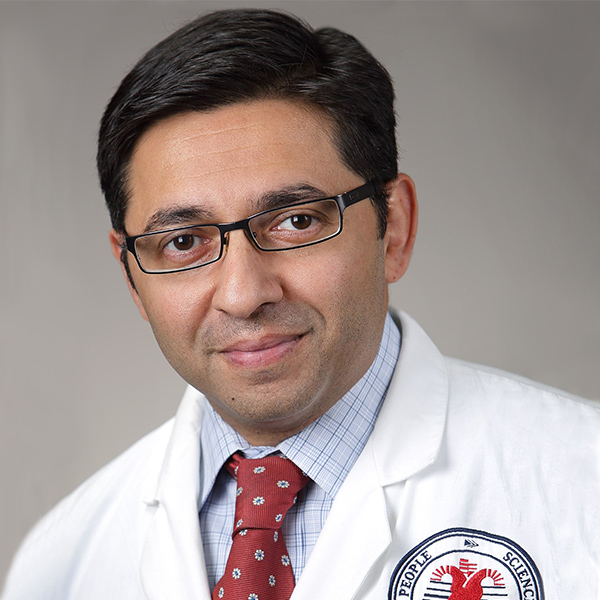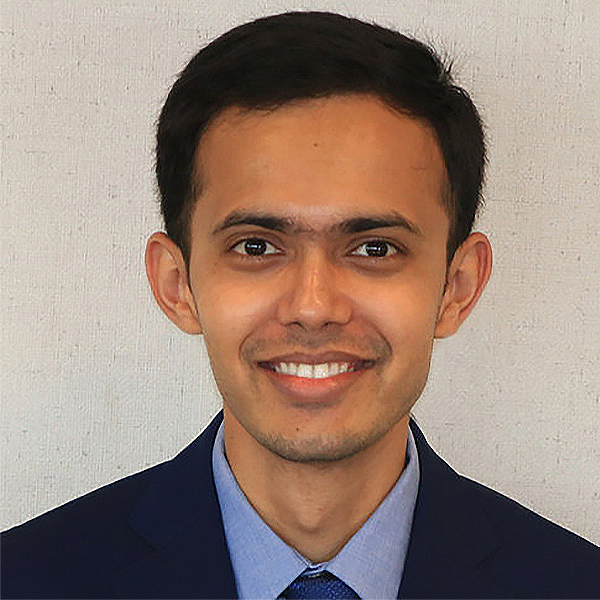Interview With Nehal N. Mehta, MD, MSCE: From Fellow to Physician-Scientist

Nehal N. Mehta, MD, MSCE, FACC, was the first recipient of the Lasker Award from the National Institutes of Health (NIH). He joined the National Heart, Lung, and Blood Institute to use the NIH Clinical Center and begin a comprehensive cardio metabolic phenotypic program.
Mehta also initiated the first large prospective cohort study of psoriasis to better define cardiovascular disease and metabolic pathways modulated in varying states of inflammation that may lead to a better understanding of the development of cardio metabolic diseases.
In this interview, Mehta shares advice on pursuing a research career as a young investigator.
What made you choose medicine over all the different fields?
I have always believed that one of the greatest privileges in life is when another puts his or her life and health into your hands. I was drawn to medicine because of the impact I could have on people's lives, the ability to challenge my mind to answer questions, and to improve health by teaching and performing research.
How was your experience training as a medical doctor? When did you realize that you also wanted to do research?
I had a wonderful experience in medical school. In fact, I thought that I would continue practicing clinical medicine for the rest of my life. However, when one of my attendings during a rotation in my second year of residency asked me if I would like the opportunity to get more involved in research (he had just been awarded his first R01 grant), I was exposed to a side of medicine that I had never experienced.
It was then that I was exposed to the bench to bedside nature of translational research, and that sparked my desire to improve medicine from an investigational standpoint. Over the years, I moved out of the bedside role into more of the translational applied scientist role. I was very lucky to have this exposure early on in my career.
What recent innovations in cardiology are you most excited about?
Being a noninvasive, nuclear imaging cardiologist, I have been most excited about the potential role of anti-inflammatory medications for the treatment of cardiovascular diseases. In fact, as a physician-scientist who studies inflammatory atherogenesis, I believe that developing novel imaging techniques to understand emerging pathways for atherosclerosis is of paramount importance in order to find novel therapies to treat cardiovascular diseases.
How would you describe your journey so far at the NIH?
It has been the best five years that I could imagine. I moved from the University of Pennsylvania to the NIH intramural program in Bethesda, MD, as part of the Lasker clinical scholars program, a 14-year joint venture between the NIH and the Lasker foundation.
This opportunity has accelerated my ability to develop a multimodal imaging qualification lab, large clinical cohort study and basic science program focusing on immune-mediated early atherosclerosis.
There are a lot more questions that need to be answered; however, my proudest achievement over the past five years has been demonstration of the increased prevalence of rupture prone high-risk coronary plaque in chronic inflammatory diseases such as psoriasis.
What should fellows look for in a clinical and research mentor?
I believe mentors have the largest role in developing investigators. Like any other relationship, if it is positive, educational and with bidirectional respect, the mentor-mentee relationship will flourish. Looking both inside and outside one's institution might be important.
My first piece of advice is to start with looking for content expertise in the mentor and then branch out to other mentoring needs, including institutional guidance, career guidance or even personal guidance.
The two people who I identify as my earliest mentors are still very involved in my decision making and career guidance because they truly cared about me as a person.
What advice do you have for fellows interested in starting a research career?
Most importantly, know one's interests and then try to combine them. I knew that I enjoyed seeing patients longitudinally, and given that I was interested in the natural history and progression of atherosclerosis, I combined my clinic with a translational laboratory to expedite generation of preliminary data.
Furthermore, it is important to make sure one understands that many types of research careers exist. For example, not all careers in research require federal funding grants, and one should seek alternative sources of funding when in need to move projects forward.
In fact, many important investigations occur as a result of partnership between industry, foundations and academic settings which can result in filling important knowledge gaps. This concept of filling knowledge gaps is critical.
Novelty is one of the most important aspects of ongoing biomedical research. Therefore, knowing what the field has and does not have is critical before starting a research program so that work can be potentially targeted to fill these knowledge gaps.
How do you balance your clinical, research and administrative work?
Balance is a very difficult issue in most early careers. Institutional support is key to limit clinical and administrative activity. I believe that anybody who committed to a career in research should have at least half of their time protected for research during the first three years of their career.
Support should be provided during these first few years to generate preliminary data, develop further research skills and apply for grant funding.
How do you navigate life and work balance?
Navigating life and work balance is the hardest and most important in early career transitioning. It is very important to have balance between time at work and outside activities.
I try to limit the amount of time away from home but also recognize that saying "yes" to invited talks are vital early in one's research program.
Finally, when I am not working, I try to be fully present in whatever I am doing and whoever I am spending time with. This means I try to limit checking and responding to email during certain times of the day.
What other advice do you have for fellows?
Develop passion. One of the major reasons why I feel that our group has been so productive is that we love what we do and are passionate about finding new avenues to help patients have a better quality of life.
I believe that when energy does not need to be put into starting the work, work has some of its own momentum to get itself done. It does not happen often but really helps the work move along, even in times of difficulty.
What are two things you would suggest to everyone to have a successful and inspiring life like yours?
Do one thing every day for yourself and have thick skin. Things will take time to set up, but resilience is the most important quality, followed by being nice!


